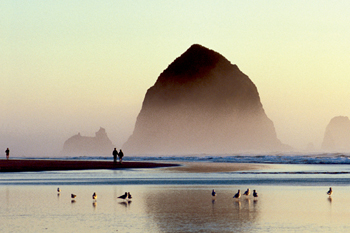This morning I was reading about several immersive writers conferences that start soon. to my surprise, I felt… yearning.
I’m going to an immersive workshop in August. It might simply be that this will be the first in-person workshop since 2019, and I’m experiencing nostalgia.
Anyway, that sense led me into a journey down memory lane, good and bad, which I will now share with you, so get out while you can. Don’t say I didn’t warn you.
I’ve gone to several immersive workshops. I’m going to write about the best and the worst, starting with the worst so I can end on a high note with the best.
There are my memories of my personal experience. As with anything, your mileage may vary.

The worst, by far, was held in what is now called Palisades Tahoe, by a group now called Community of Writers. I’ve written about this one-week workshop before because it included the Amy Tan incident. The then-Squaw Valley Writers Workshop had an elevated reputation. I attended because of that reputation. I don’t see how they earned it then, unless it’s purely a triumph of marketing.
My workshop group was about sixty percent recent MFA grads there to shop their novels and make important connections with established writers. As I’ve said elsewhere, the behavior of said graduates definitely helped shape the disgust I feel for MFA Creative Writing programs, perhaps unfairly. I have a sizeable list of what didn’t work for me (a wunderkind workshop leader one day who had to make it all about herself; two cut-throat MFA’s in serious rivalry with one another strewing chaos through the group; sloppy programming and bad organization). The attitude of the program’s leaders tops this list though. They had been together for years. There was a familial connection; I want to say father-daughter or woman and father-in-law. Other than basic annoyances (afternoon events starting late, etc), this little group, four people, were noticeable for being very pleased with themselves. They felt they knew a lot about writing, publishing, the inner workings of the arcane business and the alchemical magic of storytelling. The shimmering soap-bubble of their schtick popped for me on the next-to-last day, when I learned that while one of them had some short stories in print and one had sold a non-fiction book, no one in the quartet had sold a major work of fiction, to anybody. They were wannabes just like us, only they’d been wannabes longer.
They also kept to themselves at meals, inviting the guest lecturers/writers to join them a their table, but rarely mingling with the participants. It made an impression, and not a good one.
I didn’t love the location. This was my problem, by the way, not the workshop’s. I wasn’t familiar with ski resorts. I knew Palisades Tahoe had a mountain in it because, well, it’s a valley and, well again, it’s a ski resort. I failed to consider that a mountain famous for being covered in snow five months out of the year might not have a lot of trees. And while I knew I was miles and miles inland from the ocean, I failed to take into account what that really meant. It meant I was nowhere near the ocean. I could drive to Lake Tahoe, a beautiful, highly commercialized and very popular blue lake, but it didn’t satisfy.
Worst immersive experience, hands down.

Best immersive experience: A three-week residential workshop offered by Portland State University in Cannon Beach, Oregon. Did you note the name of the location? There’s a beach. On the ocean. Already a win. Its focus was speculative fiction; a win again. In previous years, this workshop had Ursula LeGuin as a leader. For three weeks instead of one, it cost about as much as the one-week Community of Writers workshop. I had a great group; people I still connect with (and this took place in the 1980s).
A great location, a great group. Held in a grade school, it also offered some important amenities (looking at you, Community of Writers…) like a photocopier we could use.
Then, our workshop leaders. We had a different leader each week. I’ve written elsewhere here about one of the three, definitely the least satisfactory; but Week One introduced me to Marta Randall. I’d only read Islands, her science fiction novel, before this. Marta was and is an amazing teacher in addition to being an excellent writer. She also helped our group coalesce. Marta brought her significant other, but they were both up for pizza most evenings, or walks on the beach with the work-shoppers. There’s no rule that says leaders have to make themselves available to the workshop after formal hours, and I understand better than anyone about introversion and a need to recharge. Still, it’s really nice when the leaders do join in on things.
Week Two brought us Paul Preuss, a science fiction writer. Thoughtful, probing, Paul was a considerate leader who gently (but stubbornly) prodded each of us to push our own barriers. Like Marta, he and his wife spent some after-hours time with us.
Week Three was Peter Beagle and his new woman friend. He was the least successful of the leaders, but even he couldn’t damage the value of what I’d already absorbed. Best immersive workshop.
With three days instead of a week (or three), the Mendocino Coast Writers Conference is already in a different category. It still delivers for me. Faculty make themselves available, staff are supportive, friendly and efficient. In the internet era things like print services and photocopiers are less crucial, but available if you have a situation. The workshop offers things like a quiet writing room and yummy meals. I’m in a place that resonates for me.
Instead of looking back, I should be looking forward! Looking ahead to walks on the bluffs, great workshopping with a great instructor, and lots of time with good friends.
